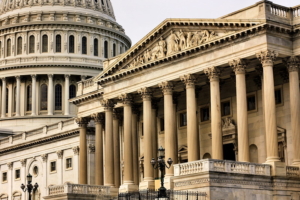Why Congress Undervalues Foreign Aid

If there is one certainty about the process of lawmaking, it is that enacting a bill into law requires persistence. Thousands of bills never pass the House of Representatives, much less receive the Senate or Presidential approval. This is especially true when it comes to the way Congress undervalues foreign aid. Govtrack.org allows anyone to view who cosponsors pending bills and track the bill’s progress through Congress. Even more telling, however, is the website’s indication of the probability that any given bill will be enacted into law.
Nonprofit organizations like The Borgen Project mobilize thousands of Americans to contact their elected officials in support of foreign aid and international relief. Nevertheless, bills regarding foreign assistance commonly have prognoses under 5%. Compared to the prognoses for bills regarding homeland security and domestic business protections, these numbers highlight the lack of urgency for foreign aid at the federal level. In the fiscal year for 2019, foreign assistance comprised less than 1% of the federal budget. Given the growing severity of humanitarian crises amidst the pandemic, why does Congress continue to undervalue foreign aid?
A Bipartisan Call For Support
A common misconception exists that Republicans are the main cause of undervalued foreign aid. Democrat-identifying voters at large typically prioritize foreign aid more than Republicans. However, Congress members in both political parties lend their support and cosponsorship to undervalued foreign aid bills. Over time, Republican and Democratic administrations alike have installed effective foreign aid initiatives. Recently, Congress members from both parties rejected President Trump’s proposal to cut to the International Affairs Budget by one-third.
While bipartisan protection of the existing aid budget is optimistic, senators and representatives are slow to demonstrate support for pending legislation. For example, the Global Fragility Act has gained a modest 20 cosponsors since its introduction in April 2019. Its prognosis, like many similar acts, stands at 3%. In contrast, an act entitled H.R. 1252: To designate the facility of the United States Postal Service located at 6531 Van Nuys Boulevard in Van Nuys, California, as the “Marilyn Monroe Post Office” garnered 50 cosponsors and received enactment within a year. When new bills and initiatives lack attention and cosponsorship, it is difficult for foreign aid to create widespread benefits. This is especially true in an unprecedented time of crisis. Oftentimes, seemingly non-urgent and low-impact acts gain more congressional momentum than urgent and potentially life-changing foreign assistance. This observation indicates a disparity in support of domestic and foreign interests.
Domestic Benefits As An Obstacle
Generally, undervalued foreign aid lacks impetus because of the framework that Congress created around foreign aid as early as World War II. From World War II to the Cold War era, support for foreign aid depended on how much that bill could bring domestic benefits back to the United States. This precedent informs how Congress evaluates foreign aid to this day. Senators and representatives often select foreign aid based on the likelihood of it bringing economic benefits to their particular geographic region.
While it is natural for elected officials to consider the American economy, an empirical question exists as to whether foreign aid realistically compromises American interests. In short, it does not. Foreign aid, specifically when USAID drives it, brings billions of dollars to the American economy each year. This has been the case since the late 20th century.
Combating Domestic Fear
Another notable reason for why Congress undervalues foreign aid is the fear of benefiting autocratic governments. This contributed to the lack of foreign aid during the Cold War, and this fear surged once again in the early 21st century in response to the 9/11 terrorist attacks. Foreign aid bills that grant basic resources to civilians rather than governments lack support from Congress based on these anxieties. However, to generalize about developing countries based on preconceived fears or stereotypes only blocks progress, both domestically and abroad. Congress is more than capable of making informed decisions about foreign aid without compromising the security of their constituents, who call in support of pending aid legislation more often with each international crisis and tragedy.
– Stella Grimaldi
Photo: Flickr
